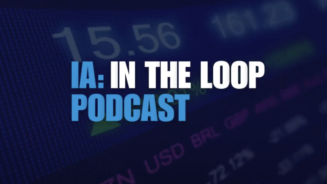The briefing, formally entitled “Ten Year Anniversary values for Inheritance Tax and updated guidance on the calculation of transfer values when Discounted Gift Schemes are effected”, sets out HMRC’s view on how to calculate the value that will be used for the periodic charge on the 10-year anniversary (TYA), and also gives updated guidance on how the transfer value is to be calculated from 1 December of this year.
There is also confirmation about a technical point that had been in dispute – whether to take account of tax liabilities in the discount calculation.
Although the first TYA on discounted gift schemes (as HMRC likes to call them) will not happen until after 21 March 2016 – the exact tenth anniversary of the changes in trust taxation that created these schemes – it is excellent that they have clarified the position now.
It should be remembered that if a discounted gift trust (DGT) has a discounted gift value of more than 80% of the nil rate at a TYA, an inheritance tax account (IHT100 and IHT100d) has to be sent to HMRC – even if a periodic charge is not thought to be payable.
Ongoing debate
As many of those in the industry know, a debate that had been taking place between the industry and HMRC concerns the settlor’s state of health. It goes as follows: given life expectancy is based on the settlor’s state of heath, what investigations should the trustees undertake in that regard? Should a medical examination take place, for example?
HMRC has now stated that it prefers the approach on a TYA of having the valuation on the basis of the settlor’s rated age next birthday when the DGT was taken out, plus an addition of 10 years for each 10-year anniversary that has passed.
Updated guidance on the calculation
As well as confirming the TYA calculation, HMRC has also made some changes to the basis of the calculation used to come up with the discounted gift value. And this applies to all cases, especially new transfers into trust.
From 1 Dec 2013, the calculation will be gender neutral, and a new interest rate applies, reduced to 4.5% a year from 5.25%. The effect of these two changes will be that the value of the transfer for inheritance tax purposes will be higher than before.
Clarification on withdrawals
Under a DGT, if a settlor took more than the 5% allowance as an income payment, or took 5% and lived for more than 20 years, a chargeable gain would arise. For investment bonds in trust, the assessment is made on the settlor if he or she is alive.
So the settlor’s income expectation is reduced by tax – and HMRC has stated that it expects a 40% liability to be factored into the calculation, if these circumstances would apply.
It is understood that not all providers have been taking this into account, so presumably they may wish to change the basis of their calculations with immediate effect.
Although HMRC does say that this “does not preclude valuations being submitted using alternative methods or valuation assumptions”, one must be aware that there is a risk that one’s chosen “alternative methods or valuation assumptions” will not be accepted as valid by HMRC.
Certainty
Finally, although the treatment of DGTs by HMRC is open to debate, from the adviser and provider’s point of view, the great virtue of this briefing note is the clarification it provides.
For although a DGT is focused on saving IHT on death within seven years, there are many settlors who outlive that period, and whose trustees therefore need to be briefed about their obligations on the TYA.
Jeremy Pearson is technical support manager of Canada Life International.
To download a copy of the briefing note, “Ten Year Anniversary values for Inheritance Tax and updated guidance on the calculation of transfer values when Discounted Gift Schemes are effected”, click here.




